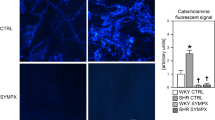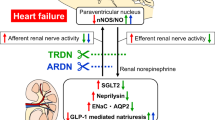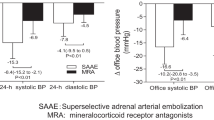Abstract
IT has been known for some time that alteration of renal function may lead to hypertension. If both kidneys are removed, renoprival hypertension ensues1. If one renal artery is partially constricted and the opposite kidney removed, blood pressure will increase to hypertensive levels2, although renal function is sufficient to maintain essentially normal fluid and electrolyte balance. The latter method is in widespread use as the means of producing hypertension. This communication deals with another method by which hypertension of renal origin may be produced, that is, renal arterial injection of microspheres.
This is a preview of subscription content, access via your institution
Access options
Subscribe to this journal
Receive 51 print issues and online access
$199.00 per year
only $3.90 per issue
Buy this article
- Purchase on Springer Link
- Instant access to full article PDF
Prices may be subject to local taxes which are calculated during checkout
Similar content being viewed by others
References
Grollman, A., Muirhead, E. E., and Vanatta, J., Amer. J. Physiol, 157, 21 (1949).
Goldblatt, H., Lynch, J., Hanzal, R. F., and Summerville, W. W., J. Exp. Med., 59, 347 (1934).
Malvin, R. L., J. Lab. Clin. Med., 63, 551 (1964).
Author information
Authors and Affiliations
Rights and permissions
About this article
Cite this article
MALVIN, R. Hypertension resulting from Renal Arterial Injection of Microspheres. Nature 206, 938–939 (1965). https://doi.org/10.1038/206938b0
Issue Date:
DOI: https://doi.org/10.1038/206938b0
This article is cited by
Comments
By submitting a comment you agree to abide by our Terms and Community Guidelines. If you find something abusive or that does not comply with our terms or guidelines please flag it as inappropriate.



